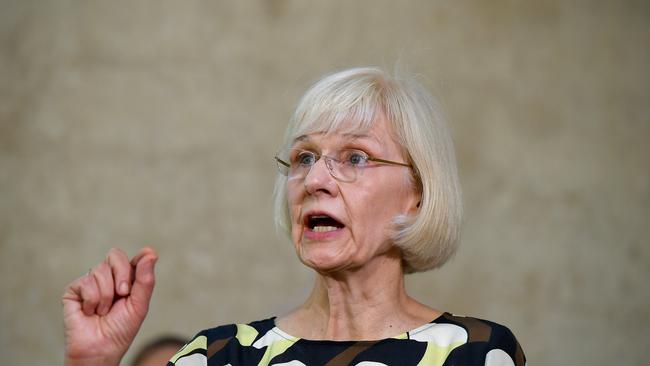Why the University of Queensland is one of the 15 ‘fast moving’ research unis
University of Queensland vice-chancellor Deborah Terry explains why her institution is one of the 15 ‘fast moving’ research universities.

“The big issues facing the world are going to be solved by big multidisciplinary teams,” says Deborah Terry, vice-chancellor of the University of Queensland.
Collaboration between researchers is critical, she says, in key areas such as energy transition, climate, child health, infectious diseases, and AI. “We’ve been putting in place what we call research networks to support knowledge sharing and cross-disciplinary collaboration.”
These networks have structure and support, and some modest funding from the university, Terry says. The networks pay off, she believes, not only by bringing experts from many disciplines together to solve complex problems, but also by boosting the university’s measurable research performance.
Research papers that would previously have been read only within a narrow field become of interest to researchers in other fields and get cited more widely. “You end up with a bigger H-index as a consequence because your work is just exposed to more people,” Terry says.
The university is also working hard to deepen its links with government and industry – a tripartite relationship, Terry calls it.
“We’ve put more structure, more resource in that area, really driving our strategic partnerships and government relations, and being really open, trying to be as accessible as possible, not pretending we can solve every problem,” she says.
Terry believes this three-way relationship is increasingly important in terms of making progress on the complex challenges facing the nation. “Governments are looking to leverage industry, and vice versa. And universities need to be part of the solution and part of those big teams,” she says.
Terry points to the example of her university partnering with Griffith University, the Queensland government and French pharmaceutical company Sanofi for a Translational Science Hub which will use mRNA technology to develop vaccines and other therapeutics. A “Team Queensland” approach, she calls it.
For the future, Terry says the university is keeping a pipeline of early and mid-career researchers moving through the system, while making sure its strong researchers get the support they need.




To join the conversation, please log in. Don't have an account? Register
Join the conversation, you are commenting as Logout